Menemsha fishermen rise with the sun. On a cool, clear morning this week, the lobstermen came down one by one to take their boats to sea.
Pat Jenkinson came down to his lobster boat Solitude. Herbert Hancock’s boat Billie H. began with a roar of its diesel engine.
Early morning is the most civilized hour on the Menemsha waterfront. It starts with first light. Even at the height of summer, the fishermen claim ownership to the sights and sounds of the morning. This is their time. The sense of quiet is as strong as the first rays of sunlight reaching across the marsh. By the time the smell of frying bacon drifts down from the hill above, the Menemsha lobstermen and other pot fishermen are out beyond the bell buoy.
Even the small local and visiting fishing draggers that spend the night at Dutcher Dock are usually gone by daybreak. They all like to get out to do their fishing before the late afternoon winds kick up the seas.
Only by mid-afternoon do these men of the sea come home. Everyone, especially the wives, sons, daughters and friends, hopes they make a day’s pay. These things matter. In Chilmark, everyone is still connected to the sea.
“First light in the morning, it’s peaceful. It is the best time of day in the summer,” says Matthew Poole, 64, a lobster fisherman. Summer visitors may crowd the narrow streets at sunset, but morning belongs to the fishermen.
To anyone arriving at Menemsha for the first time, this is the Vineyard’s prettiest of communities. It is the quintessential New England fishing port. For every Vineyard visitor, whether it is winter or summer, the little community tucked in between the North Shore and Lobsterville knows no equal.
Years ago, a summer resident photographer published a book of Menemsha black and white photographs taken in the winter. Friends and relatives of the little village scooped them all up in no time. The small fishing shanties are precious.
But don’t talk about Menemsha’s quintessential anything to a salty commercial fisherman. They’ve heard it enough from every visitor.
On Dutcher Dock, the waterfront elders are still respected. They are sometimes referred to as “uncle” even by those unrelated. To them, Menemsha is a heritage. It is a haven for an industry that has been pushed and shoved by change. Some of the changes have been good. Many of them are worrisome.
In many coastal communities, fishermen are turned away from the dock in favor of the more lucrative tourists and their clean, expensive boats. In Menemsha the two can comfortably share the same harbor.
When fishermen like Eric Cottle, Jimmy Morgan and Louis S. Larsen started fishing years ago, radar, Loran and electronic fish finders were unavailable. They read their position by sighting familiar spots, or ranges, on the shore and running from one to the next. A compass never ran out of batteries or shorted out. They read the bottom with a sounding lead, also called a lead line. To get a clue where they were, they applied thick grease to a piece of lead and lowered it over the side by line. By reading the silt, sand or pebbles in the grease, fishermen knew where they were.
Years ago there were plenty more fish in Vineyard waters than there are today. Today, with colorful electronic fish finders capable of identifying fish below, the fishermen agree their industry is now too efficient.
And though tensions have arisen in recent years in other ports between the lobstermen and the draggers, Menemsha is different. Lobstermen fished the rocky bottom and the draggers fished the sandy bottom. Conflicts were never too serious.
“There are very few Menemsha fishermen who ever sold a ‘short’ [legally undersized] lobster,” says Jimmy Morgan. “They would never think of scrubbing [the eggs off a female lobster, another illegal action].”
For the young and old fishermen of Menemsha there is a higher code of conduct. Part of it has to do with a sense of ownership. The lessons of the elders have been passed down. Stephen Larsen says he tries to pass it down to his children whenever they are out with him.
With the decline of fishing stocks in Georges Bank, Mr. Larsen says, the commercial fishermen have gotten a bad rap in the media. Some don’t deserve it. When he takes his sons Justin, 12, and Scott, 10, he says, he tries to show them fishermen are environmentally sensitive.
On a foggy August night last summer, a school of striped bass swam in a huge circle within the harbor. The fish made sounds as they brought their mouths to the surface. Sand eels jumped from the surface. The whole scene was lit by the parking lot lights. You don’t have to go far to find the fish of the sea: bluefish, tautog, summer flounder, bonito and false albacore. The children of Menemsha know this already. Spring, summer or fall, you will always find a small group of youngsters with fishing rods at the edge of the Menemsha jetty. This is a harbor where memories are made.
Robert Flanders can remember happy days as a youngster, following his instincts in a boat. “The truant officer always knew where to find us,” he says. “I remember Eric Cottle and the Larsen boys, we’d all be fishing from a skiff.” They’d row around the harbor individually and together. “We’d fish for flounders in the creek. There was mackerel, scup, everything. There were plenty of fish in those days.” That was before the hurricane.
“I lost my first boat in the hurricane of 1938,” he says. What was the boat’s name?
“Hard Luck,” says Mr. Flanders. The boat was 22 feet long and had a deep well for keeping the lobsters. After the storm, he says, “You know, I never found even a piece of that boat.”
When he got older Mr. Flanders worked off-Island as a carpenter. He returned to Menemsha 28 years ago and has been lobstering, scallopping and quahaugging ever since. “I always figured I’d come home to fish.”
Mr. Flanders’ generation is not the only one that has fond memories of small boat fishing.
Chilmark’s newest harbor master, Christopher S. Yeomans, got the job of a lifetime. Now 36 years of age, Mr. Yeomans recalls with affection his young boating experiences in the Menemsha harbor. Even at 12 years of age, he recalls hauling lobster pots in a 17-foot Boston Whaler.
For the fishermen, keeping Menemsha a fishing port is more than the preservation of a livelihood, it is a matter of heritage.
With the exception of five years in the Coast Guard, Everett H. Poole, 65, has spent his life on the Menemsha waterfront. Last year, Mr. Poole sold his 50-year-old store to his son Donald. Mr. Poole is now following the steps of his father. He goes lobstering. The headaches and joys of a 24-hour-a-day business are now his son’s.
Mr. Poole knows this little village looks out not only for its own but its visitors too. There has always been and still is a warm relationship between the Menemsha community and its summer visitors.
It is true, Menemsha may get crowded on a summer’s day. And it is true that the local commercial fishermen are shy of crowds. It does get tiresome to be asked the same questions from one day to the next. But don’t misunderstand their preference for distance and solitude as somehow being unfriendly to their summer visitors. In this seaside community there is a warm link.
“People will help each other out when there is someone down and out,” says Mr. Poole. “I’ve seen three or four fishermen walk into someone’s yacht to offer help in the engine room, so the guy could get where he was going, so he could get to New Bedford or wherever he was headed. And they did it at no charge. They’d fix ‘em up or they’d make enough mends so they could at the least get to where they could get the repairs.”
That kind of generosity has passed from one generation to another.
“Let me tell you a story. Back in the 1960s there was a fisherman that came to Menemsha from Maine, where the fishing had gone to hell. This guy Alvin Beale came into Menemsha looking for a way to make a living. He came here with his boat and he said: I got to do something. I don’t have the fuel to get home.
“Well the Old Man, my father, went into his shed. And he got the stuff he wasn’t using. He rigged that man for swordfishing on all borrowed gear.”
Mr. Poole has seen lean times in Menemsha. What with the decline in cod, yellowtail flounder and other groundfish, winters are awfully quiet at Dutcher Dock. Not too many years ago, the fish market was busy year round.
“I used to employ six people all winter. Now it’s one man can handle everything in the winter with one hand tied around his back.”
But the fish stocks will come back. Mr. Poole says he is hopeful about returning stocks. Fluke are showing signs of recovery in Vineyard Sound.
As an emergency measure, last year fisheries managers closed huge areas of Georges Bank to fishermen. With the reduction in effort, everyone is hopeful the Island’s once-big industry will return. It may take some time, but there is now hope in the air. Mr. Poole says: “The whole salvation of the fishing industry will be in the smaller boats coming from ports like Menemsha.”
Many of the fishermen on the waterfront believe the waters immediately around the Vineyard cannot take the pressure of corporate-owned fishing factory ships that work the waters 24 hours a day.
Matthew Poole sees a danger already in the sea clam and ocean quahaug fishery that has grown in the last two years. These are boats, corporately owned, that come into Vineyard waters and drag the bottom with little regard for the local area. Mr. Poole says of the sea clammers: “It is hurrah for me and to hell with you.”
“The saddest part of fishing for Menemsha is that there hasn’t been one swordfish landed here in so many years,” says Mr. Morgan. “Yes, the Mayhew brothers have brought it in. But the days of going south of Noman’s to get swordfish are over. I miss that the most.”
The future of Menemsha fishermen will lie in the successes of the coming generations.
The two oldest working fishing boats on the Vineyard and possibly in southeastern Massachusetts fish out of Menemsha. The boats Viking and Little Lady were launched in 1929. They are maintained by the sons of their previous owner.
The 54-foot Viking returned to Menemsha last Sunday after spending the winter in Oak Bluffs. Her owner, Craig Coutinho of Vineyard Haven, fishes the boat every summer out of Menemsha. This week he went searching for fluke. “I used to come out here with my father, year round.”
The Viking is capable of carrying 20,000 of pounds of fish. Today Mr. Coutinho says he’d be happy with 100 pounds of fish a day. “You got to understand, years ago there were lots of fish. A fisherman got six cents a pound. Today they get four or five dollars a pound. That is it in a nutshell.”
Ever since the inshore fishery started spiraling downhill, Dennis Jason of Chilmark stopped fishing in Little Lady. To make a living, he has worked a number of shore jobs. He works now as a tugboat captain for Ralph Packer in Vineyard Haven, but he hopes to take his boat fishing for fluke this summer. It has been three or four years.
“It’s showing signs of recovery,” Mr. Jason says. Ever since the state prohibited night fishing for fluke, the fish have shown stronger signs of recovery. Fluke (also called summer flounder) are a popular flat fish caught from here to Cape Hatteras. Each spring many of the fish come into Vineyard Sound to spawn. In the 1980s, the fluke were followed into the Sound by bigger fishing boats and they dragged night and day. In no time, the fishery collapsed.
In the last year Christopher Murphy of Chilmark has refitted an old fiberglass lobsterboat, the Teresa M., for more than lobstering. He added an A-frame to stand over the stern and cut an opening in the transom, to allow him to do small scale dragging for fluke. In addition to lobstering and dragging, Mr. Murphy sets conch pots. In the winter he goes oystering in Tisbury Great Pond.
Mr. Murphy believes the survival of the Island fisherman will depend on his being small and able to adjust to the changing fisheries.
On a sunny Sunday afternoon, Louis S. Larsen sat on a bench next to his daughter Betsy Larsen’s fish market. He watched as his grandsons fished off Dutcher Dock with a simple rod and reel and a piece of squid.
Mr. Larsen grew up in Menemsha. He has fished throughout the Atlantic, to as far South as the Yucatan. His sons Louis and Dan own Island fish markets. “The fish will come back if they give them a chance, and if they give the fishermen a chance,” he says.
Two years ago, Mr. Larsen sold his 70-foot fishing boat Mary Elizabeth. The 70 year old fisherman saw the best and the worst of fishing. And while he saw the rise and fall of the fishing industry, he feels strongly Menemsha should always be a haven for the commercial fishermen.
“This dock is waiting for the day when the fishing boats return. That dock must be here. You can’t make a fisherman overnight. It takes a lot of learning,” he says, and it begins at a young age. “People think that fish are stupid and easy to catch. How come you can catch a codfish on one side of the harbor and not the other? I’ve thrown mackerel at tuna swimming alongside the boat. They’ll grab it. But try and trick them and put a line and a hook in a mackerel, and they won’t touch it.”
After all his years of fishing away from the Vineyard, Mr. Larsen says he knows why visitors cherish the fishing village so much. It is a beautiful place with a strong community feeling. And yes, he says: “It is quaint.”
“Sometimes when I fished, I’d be away all winter. I went fishing in the Gulf of Mexico. We went into Aransas Pass, Texas; Golden Meadow and Venice, Louisiana. Of all the places, Menemsha was the best. Coming home was the most important.”




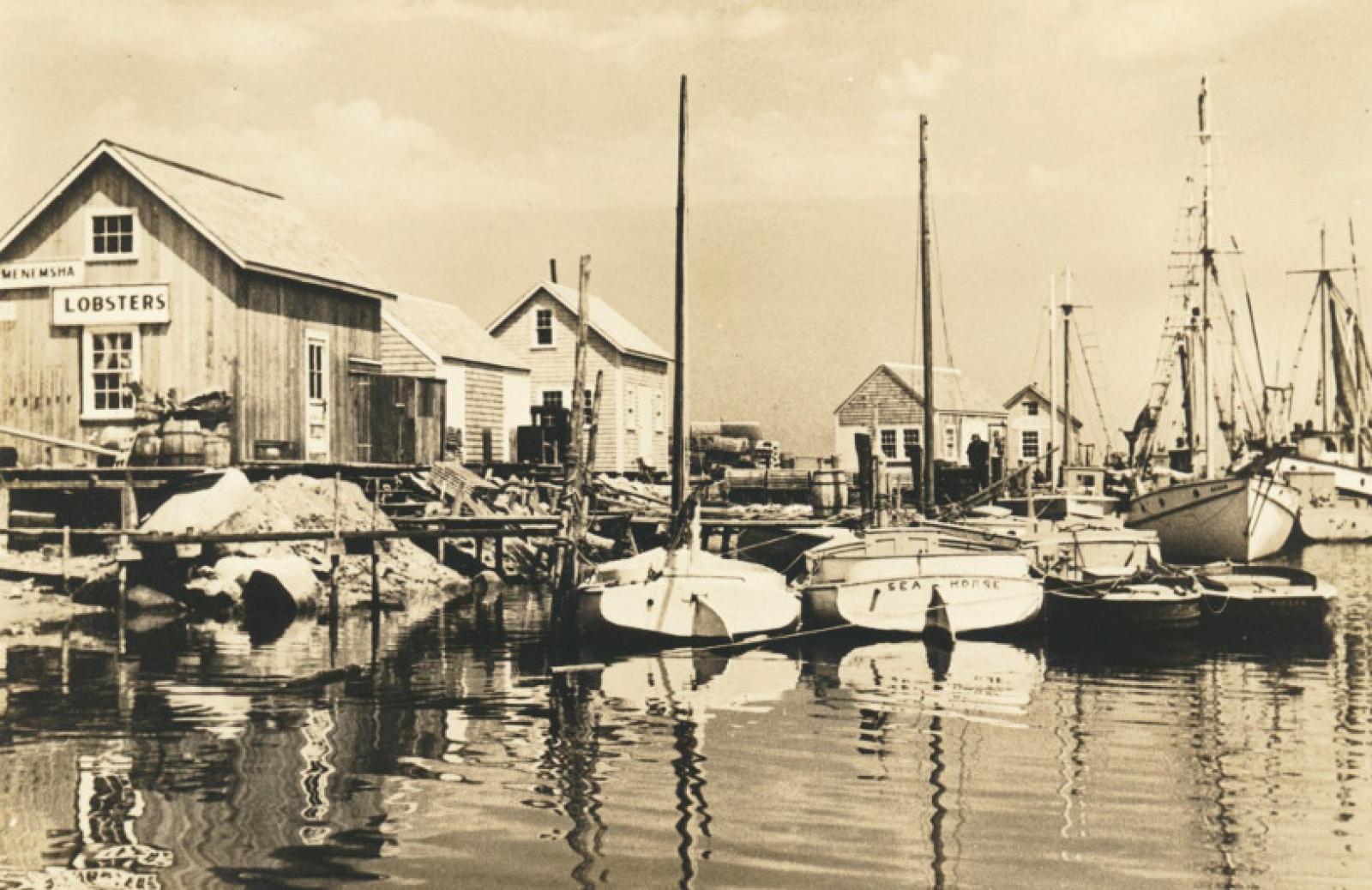
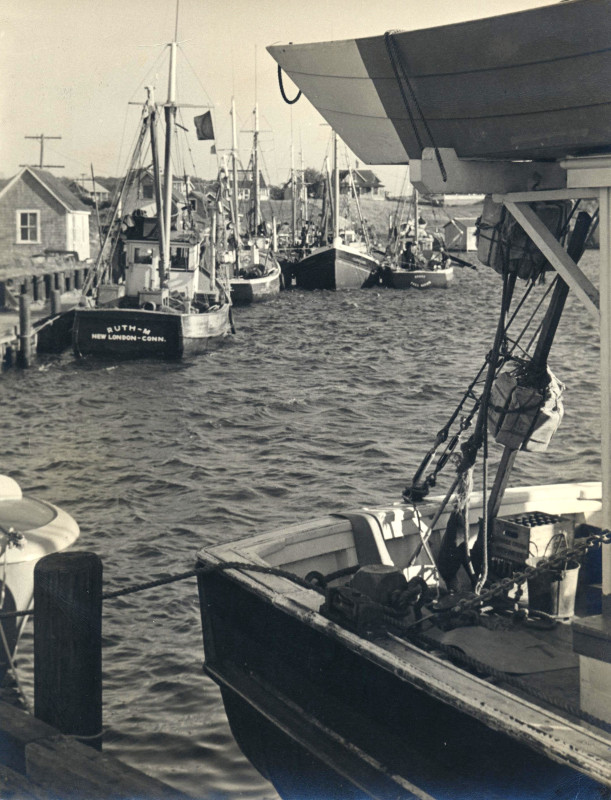
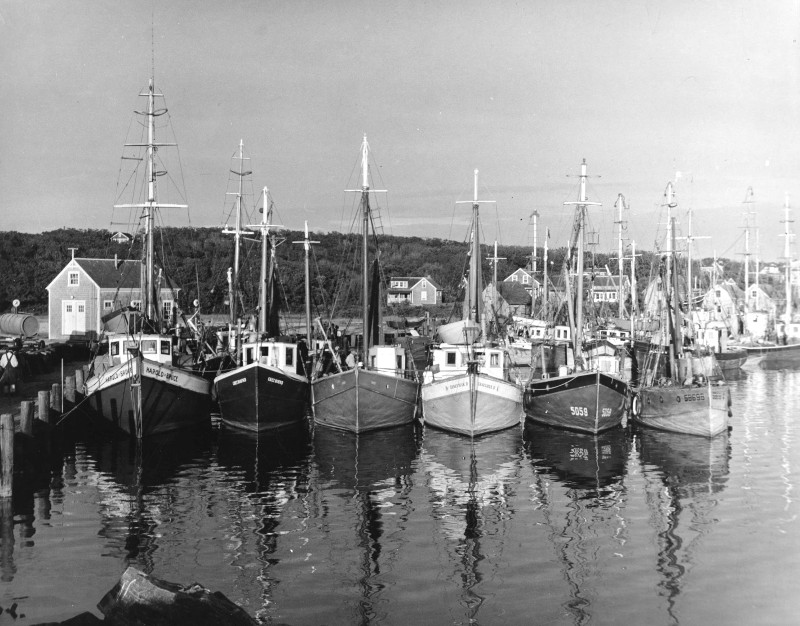
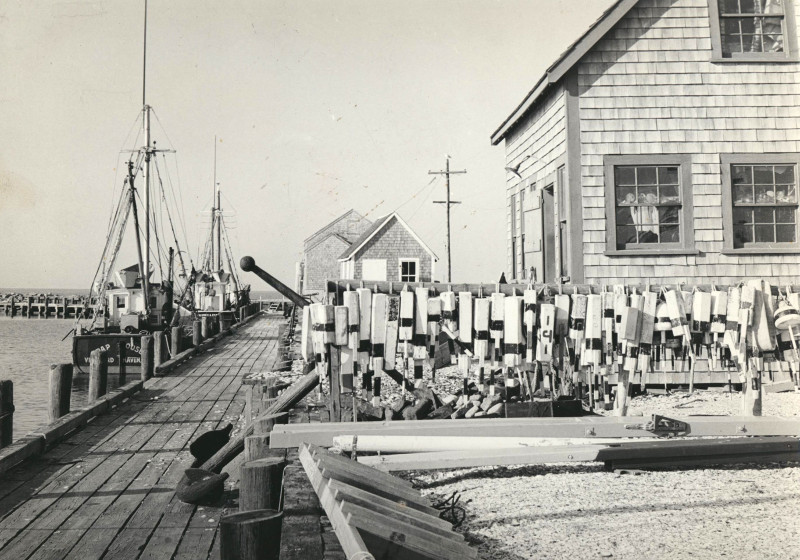

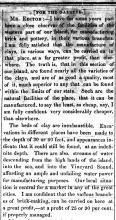
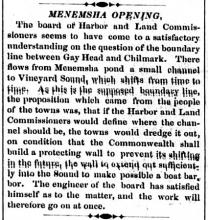
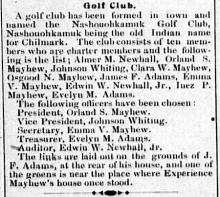

Comments